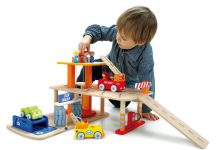Early readers do not always win the race.
New research says that teaching your child to read too early could give rise to problems that can have enduring effects.
A study conducted at the University of Ottago has revealed that children who begin to read from age five are not likely to be more successful at reading than children who commence later, say from age seven.
Dr Sebastian Suggate, who conducted the research, found that the late learners caught up and matched the reading abilities of their earlier-reading counterparts by the time they we11.
“The research then raises the question; if there aren’t advantages to learning to read early, could there be disadvantages to starting teaching children to read earlier (at age 5). In other words, we could be putting them off,” he says.
Children are not psychologically ready for formal learning at an early age, according to Dr Raymond Moore and Dorothy Moore. In their books, ‘Better Late Than Early’ and ‘School Can Wait’, they deliberated on the importance of late-reading, which allows children to gain the required maturity and logical skills necessary for formal work.
Take Violet, age 5, for example. Taught to read at age 3, she reads story books meant for 8-year-olds perfectly. If this makes you feel envious, hold on, because Violet’s teachers are not as thrilled at her skills. Violet has a comprehension age of only three. She can ‘read’ but she has no idea what she is reading. What Violet displays is termed as “barking at print”.
She merely decodes the letters into sounds but she is not reading to make sense of print. And this sort of wiring is hard to undo, say experts.
Jane Healy, author of ‘Your Child’s Growing Mind’, says most 3-year-olds are not mature enough to read properly as the scaffolding simply isn’t there.
A child of that age has neither the brain neural networks nor the language experience to make meaning out of her reading. This makes her reading efforts a low-level skill and the brain can get stuck in a bad practice of decoding without meaning.
Not all early readers become mere decoders, like Alex, 8. He went on to read by age 5 and could comprehend texts effectively, but sadly, the real objective of reading was lost. By the time he was 7, he was not interested in reading. What children like Alex acquire is a technical competency; not a life-long habit of reading, which should remain the top goal of learning to read, according to reading experts.
“It defeats the purpose of sending my son to early reading programmes if he does not end up as a reader. He should love reading, so I always look for classes that pique his interest,” says Marie, a mother of 4-year-old, who attends English enrichment classes.
According to Healy, early reading may not be a sign of intelligence. “Many bright, even gifted children, have trouble reading before they’re seven years old,” she said.
A long-term study on reading standards concluded that the best age to learn to read is 6. Early preschool years should be spent on pre-reading activities like ‘Speech and Drama’, Story sessions, role play and other activities that will allow young children to associate reading with fun and pleasure, and learn phonological skills. These naturally get children ready for reading as they get absorbed into the world of stories, rhymes and build on their vocabulary.
This prepares children for reading for the right reason, and that is to find out what the words mean and uncover the story.
Experts suggest the immersive way to teach reading to young children. Sit with your child in a relaxing place and read something that interests him. Does he like cars? Then pick a picture book on one and read it together. Point out the words, let him see you read from top to bottom, left to right. Never push him before he is ready, or force him to memorise words to read or you’ll put him off reading for lifelong.





































